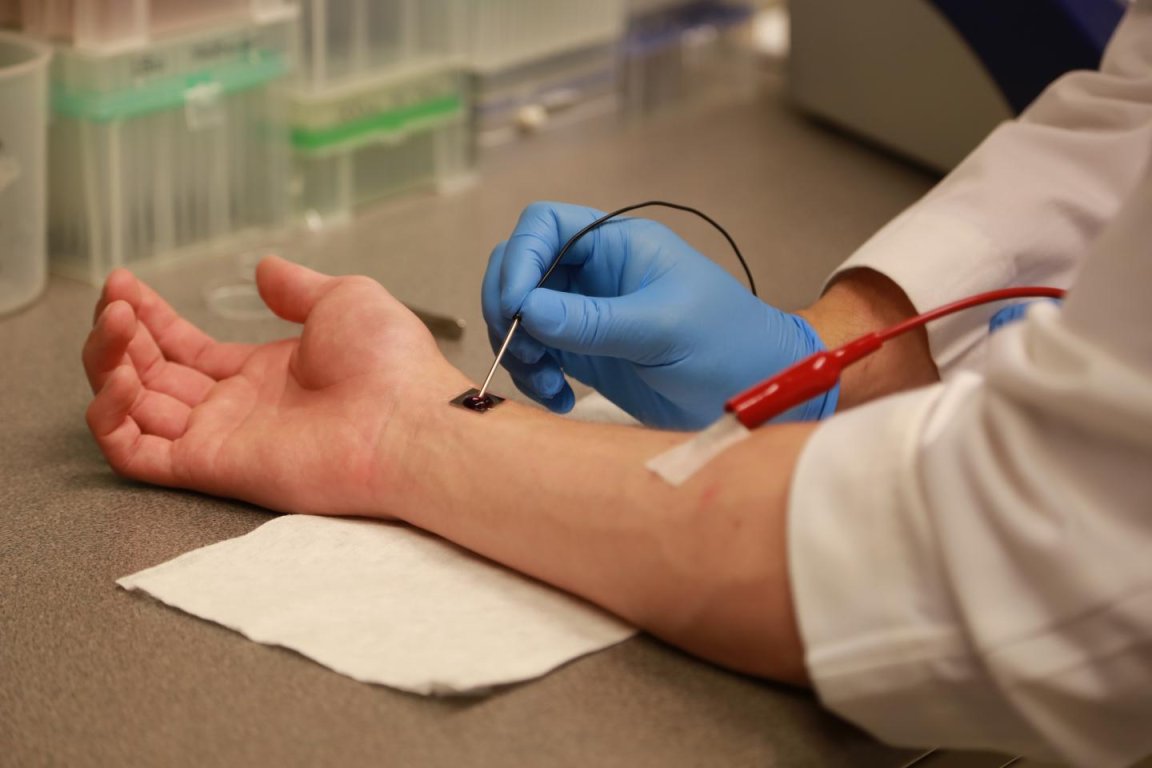
Just a Single Touch
Science fiction has often featured technology that’s capable of healing wounds and injuries almost instantly. Such devices could be found in the medical bay of any interstellar ship. Well, now you don’t have to look any farther than Columbus, Ohio, where researchers from the Wexner Medical Center at the Ohio State University have developed a device capable of repairing organs with a single touch.
The chip is put at the surface of the skin, where it uses a technology called Tissue Nanotransfection (TNT) to input a certain genetic code into the skin cells. These turn the skin cells into the type of cell needed to treat a specific injury or condition. By applying a small electrical current, DNA or RNA are injected into the cells, which are then biologically reprogrammed to morph into the kind of cell most needed in situ.
“It takes just a fraction of a second. You simply touch the chip to the wounded area, then remove it,” Chandan Sen, director of the Center for Regenerative Medicine and Cell-Based Therapies at Wexner, said in an OSU press release. “At that point, the cell reprogramming begins.”

Next Generation Gene Therapy
The device introduces a new approach to gene therapy and cellular reprogramming, one that isn’t particularly invasive. In a study published today in the journal Nature Nanotechnology, the researchers talked about a series of lab tests that demonstrated the power of the device. Applied to the injured legs of mice, the blood flow in these legs, vascular scans revealed, were initially either limited or completely blocked.
“We reprogrammed their skin cells to become vascular cells,” Sen explained. “Within a week we began noticing the transformation.” Although the injured mice didn’t receive any other form of treatment, active blood vessels formed within two weeks. By the third week, the legs were fully healed. “What’s even more exciting is that it not only works on the skin, but on any type of tissue,” he added.
This OSU research is yet another example of how technological advancement pushes medicine to new frontiers. This goes beyond building better machines and equipment; several hard sciences have proved a boon to medical research and development, including artificial intelligence, from labs-on-a-chip, and even blockchain.